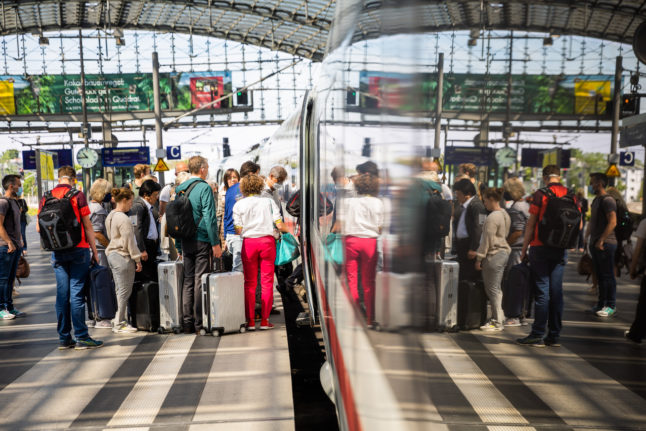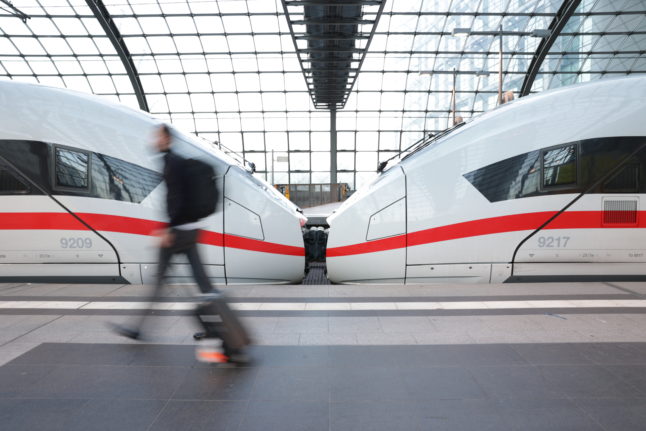What’s going on?
In conjunction with supermarket chain Edeka, Deutsche Bahn has launched a brand new ticket deal for people who are hoping to travel around Germany on a budget this year.
The ‘Egal Wohin Ticket’ – which roughly translates as the ‘it doesn’t matter where’ ticket – lets people travel anywhere in Germany for a flat price of €39.90.
The deal may sound less appealing at the moment given the fact that the €9 ticket – which enables people to travel on unlimited regional and local trains around Germany – is still on sale.
However, unlike the €9 ticket, the Egal Wohin Ticket can be used on any type of train, including long-distance ICE, EC and IC trains. It can also be used on regional and local trains, just like the €9 ticket can.
READ ALSO: €9 for 90: Everything you need to know about Germany’s cheap travel deal
How does it work?
In contrast to the €9 ticket, the Egal Wohin Ticket works a bit more like a voucher for a single train journey rather than a monthly ‘Abo’ or subscription.
These ‘vouchers’ are sold alongside the gift cards at participating Edeka shops, as well as other stores such as Marktkauf, Budni, Nah & Gut and Trinkgut.
Each one costs €39.90 and comes with a coupon code that can be entered on the Deutsche Bahn website when booking a ticket. This has to be done by June 30th, 2023 but the train journey itself can take place anytime until December 9th, 2023.
Regardless of how far you’re travelling or how complicated the journey is, the Egal Wohin Ticket should be valid for any single journey from A to B in Germany, as long as you’re travelling in the second-hand carriage.
You can also take children aged 14 and under with you for free as long as you specify that they’ll be travelling with you when you book the ticket.
READ ALSO: What tourists in Germany need to know about the €9 public transport ticket
Is it worth it?
Since the Egal Wohin Ticket is nowhere near as cheap as the €9 ticket and is also only valid for a single journey, you may be wondering whether it’s worth shelling out on.
The answer is that it partly depends if you’re planning on taking any long-distance trips in Germany in the near future. For places that don’t take too long to get to on regional transport, the €9 ticket is a much better deal all round, but for trips like Berlin to Munich that are best done by high-speed rail, the €39.90 ticket might be a better option.

The other thing that it’s important to note is that the Egal Wohin Ticket can’t be combined with any other discounts (like the Bahncard 25) or concessions. So before you rush out and get one, it could be worth seeing what the prices are like for your intended journey ordinarily.
READ ALSO: EXPLAINED: How to find cheap train tickets in Germany
However, it is worth pointing out that train tickets in Germany (especially on the ICE) can get very pricey if you don’t book weeks in advance. Since the €39.90 coupon code can be used on any ticket up to two days before you travel, this could be a life-saver for the less well-organised who are suddenly facing eye-watering prices for a last-minute train ticket.
Of course, you will have to pay for a return ticket, so in reality, you’re likely to shell out around €80 for a complete journey there and back.



 Please whitelist us to continue reading.
Please whitelist us to continue reading.
Member comments